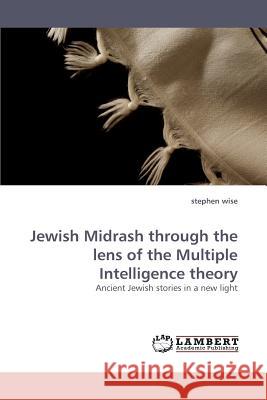Jewish Midrash through the lens of the Multiple Intelligence theory » książka
Jewish Midrash through the lens of the Multiple Intelligence theory
ISBN-13: 9783838336701 / Angielski / Miękka / 2010 / 108 str.
The collection of value-laden texts commenting on the Bible is known as the Midrash, yet the word Midrash is also employed in the sense of education and learning. Using this variety of stories, parables, law codes, and analogies, the Rabbis were trying to reach the widest audience. There is a modern theory of education, created by Dr. Howard Gardner, which suggests that each person has the capacity to learn in different ways, the "Multiple Intelligence" theory, specifying seven Intelligences: Linguistic, Logical-Mathematical, Bodily-Kinesthetic, Musical-Rhythmic, Spatial, Intrapersonal and Interpersonal. This thesis will examine Midrashim through the lens of Multiple Intelligences, showing that the Rabbis composed their works knowing that they had to appeal to different learners who learned and accepted information in different ways, following the advice in Proverbs 22:6, "Train a lad according to his way."
The collection of value-laden texts commenting on the Bible is known as the Midrash, yet the word Midrash is also employed in the sense of education and learning. Using this variety of stories, parables, law codes, and analogies, the Rabbis were trying to reach the widest audience. There is a modern theory of education, created by Dr. Howard Gardner, which suggests that each person has the capacity to learn in different ways, the "Multiple Intelligence" theory, specifying seven Intelligences: Linguistic, Logical-Mathematical, Bodily-Kinesthetic, Musical-Rhythmic, Spatial, Intrapersonal and Interpersonal. This thesis will examine Midrashim through the lens of Multiple Intelligences, showing that the Rabbis composed their works knowing that they had to appeal to different learners who learned and accepted information in different ways, following the advice in Proverbs 22:6, "Train a lad according to his way".











